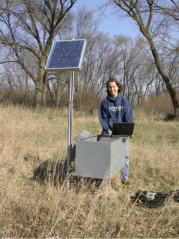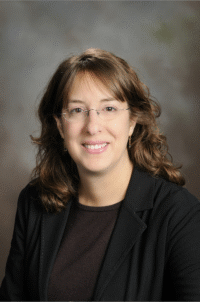
ARSENIC IN GROUND WATER:
Part 2: Advances in Arsenic Site Investigations: Methods, Data Collection and Interpretation
Our understanding about arsenic in groundwater systems - despite the recent, large amount of research on this subject- is still in its infancy. Part 2 of this webinar series addresses characterization of arsenic-impacted sites, appropriate field methods, and techniques for data interpretation. Case studies highlight the application of these concepts to real-world problems faced by practicing environmental geoscientists and engineers. Arsenic investigations often involve very low concentrations of constituents of concern, a large degree of spatial variability in solid-phase and aqueous arsenic concentrations, and biogeochemical conditions that require careful data collection and interpretation. Following the foundation of arsenic geochemistry presented in the first webinar of the series, part two applies these concepts to a discussion of techniques useful to document and understand site-specific occurrences of arsenic in groundwater systems.
This series of webninars is designed for professionals working in the fields of environmental consulting, site remediation, groundwater investigations, water quality issues, and brown fields developments. Regulators, consultants, engineers and hydrogeologists will appreciate the real-world examples and complex conditions that are characterized and explained with interpretations of familiar types of data and basic geochemical principles.
TOPICS FOR PART TWO:
- Field and laboratory methods for solid- and aqueous-phase arsenic characterization
- Sampling and measuring for constituents to identify geochemical conditions
- Characterization of background conditions and the spatial distribution of geochemical conditions
- Case studies illustrating sources of arsenic to groundwater, geochemical mechanisms, and their manifestation in water chemistry
YOU WILL BENEFIT FROM THIS TWO-PART WEBINAR SERIES BY:
- Understanding the advantages and disadvantages of drilling and sampling methods in arsenic investigations
- Demonstration of a step-wise process to identify important geochemical processes at a site
- Conceptual models illustrating concepts of arsenic mobility and transport supported by data sets and interpretation from case studies
| Fee: |
249.00 USD Per Computer Site (unlimited participants per site)
when you register for both parts of the two-part series*.
299.00 USD Per Computer Site (unlimited participants per site).
|
| Instructors: |
Madeline Gotkowitz, PG. and Madeline Schreiber, PhD. |
Pay one site registration fee and an unlimited number of participants from your organization can attend at that site.
Participants will receive a handout referencing the webinar topics and discussion.
Earn 1.5 Professional Development Hours (1.5 PDH) for this webinar.

A Record of Attendance Form is included free with each webinar for your record keeping and individual PDH verification. We ask your on-site coordinator to return the completed and signed copy of the Form to us following the webinar for (1) maintaining a separate copy as a service to attendees and (2) forwarding to NIU confirming attendance for those who order certificates.
Attendees may also order an official a Course Completion Certificate from Northern Illinois University for a small administrative fee. The Certificate is optional and may be ordered separately following the webinar to confirm your attendance and showcase the certificate on your office wall. Instructions for ordering certificates are given during the webinar.

* This webinar is eligible for the ’BUY THREE, GET THREE’ discount; however the two-part webinar series discount shown above cannot be combined with it.
Instructor Bios
 Madeline Gotkowitz
Madeline Gotkowitz
Hydrogeologist, Wisconsin Geological and Natural History Survey
Professor, University of Wisconsin – Extension
Madeline Gotkowitz is a research scientist at the Wisconsin Geological and Natural History Survey, where her work focuses on regional groundwater flow and transport modeling, subsurface fate and transport of human enteric viruses, and flow and transport across aquitards. Gotkowitz’s field-based investigations of arsenic in groundwater address conditions in surficial and bedrock aquifers, and the affect of well disinfection on arsenic release. Gotkowitz holds a B.A. in Environmental Sciences from Smith College and an M.S. in Hydrology from New Mexico Institute of Mining and Technology.
 Madeline Schreiber
Madeline Schreiber
Associate Professor, Geosciences
Virginia Tech University
Madeline Schreiber’s research in chemical hydrogeology involves analysis and quantification of chemical and biological processes that impact contaminant transport. Over the past 10 years, Schreiber and her students have focused on biotransformation of both organic and inorganic species by subsurface microorganisms, adsorption of arsenic species (organic and inorganic) to subsurface materials, and release of trace elements from minerals during oxidative and reductive dissolution. Her work has been funded by the National Science Foundation, the U.S. Department of Agriculture, the National Institutes for Water Research, and private foundations. Schreiber received PhD and MS degrees from the University of Wisconsin-Madison and a BS degree from Yale University.
 Questions? Email us at service@midwestgeo.com or call 763.607.0092
Questions? Email us at service@midwestgeo.com or call 763.607.0092
Webinar Topic Suggestion: Click Here